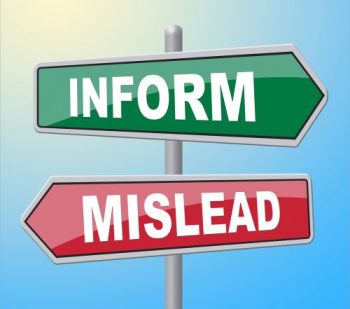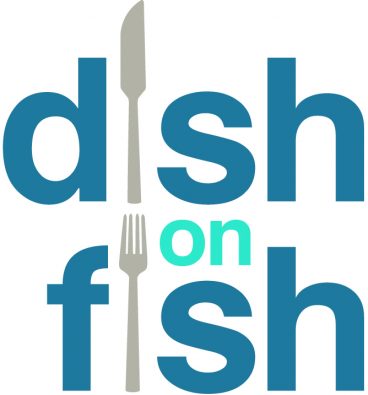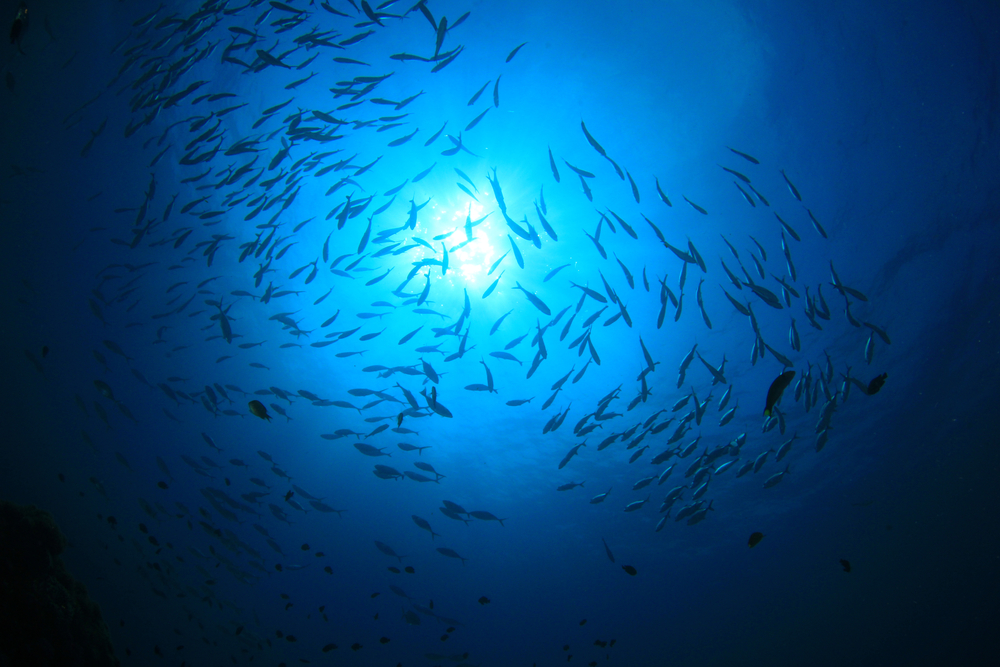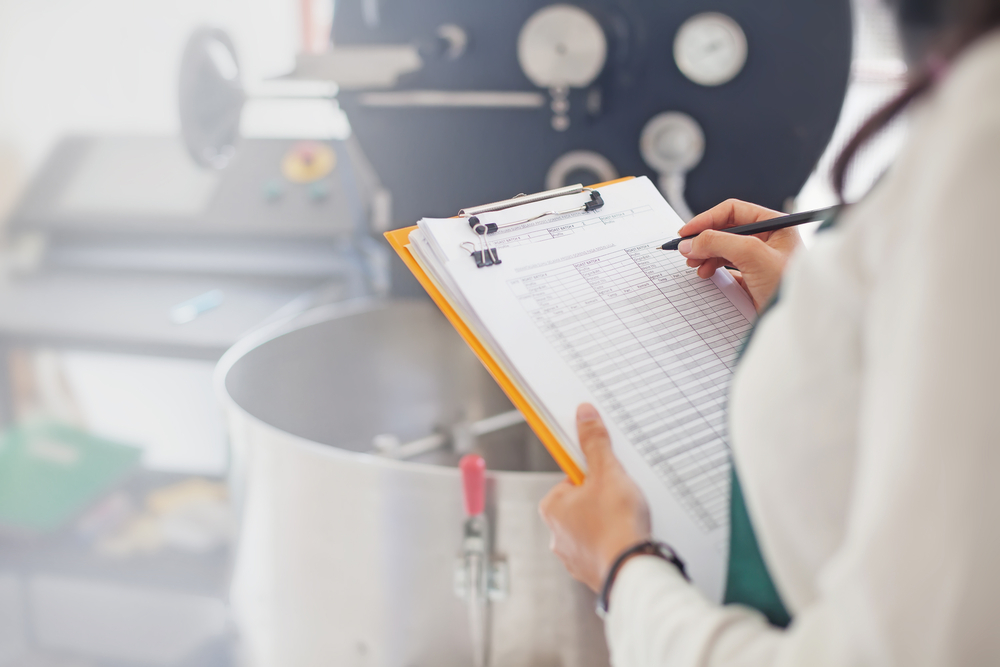All posts by NFI Media
Attention Reporters: USC Study Has Fatal Flaws
Taking a break from allowing Aunt Becky to bribe her kids’ way into the school, USC is now promoting a new study that looks at dietary recommendations for pregnant women and children regarding foods that could contain environmental contaminants.
The study is academically weak, because it only looks at the risks of consumption of seafood while completely ignoring the benefits, especially during pregnancy/childhood. Protein, vitamins and omega-3’s are totally disregarded. By contrast, you could fill a library with the studies that conclude the benefits of eating fish far outweigh the risks.
Journalists should also be wary and take care in reporting that the study focuses on “six European countries,” not the United States, a vital distinction that could get lost in casual reporting.
Here’s why it’s so important with regard to the fish findings. The study’s conclusions are only relevant to a scenario in which hypothetical harms would be reduced if “pregnant women and children did not exceed the current dietary recommendation for fish.” In the U.S., pregnant women are encouraged to eat 12 ounces of fish per week, but the Food and Drug Administration finds they eat only 1.89 ounces, far below the threshold level for benefits, let alone risk.
Suggesting that the study has repercussions for American women and children, whose consumption levels are known to be worrisomely low, is both unwarranted and potentially dangerous. It’s like saying a road might be safer if the speed limit were not raised from 55 to 65 mph, ignoring the fact that the average motorist on that road is traveling at only 8.66 mph.
Pregnant women should be working to increase their seafood consumption, not decrease it.
For accurate facts about seafood and pregnancy visit youtube.com/aboutseafood
Latest News
Proper Perspective on the Latest Mercury Study
A new study focused on climate change, fishing and mercury in cod and bluefin tuna has sparked a bit of hyperbolic reporting that lacks a complete understanding of the findings and often ignores needed perspective.
Not A Study About Humans
First and foremost this is a study about mercury in fish. Not a study about mercury in humans. This is not a consumption study. It contains no empirical findings about human health. It did not study human health.
Meanwhile, the authors are clear that their research is designed to illustrate what they see as global warming impacts on ecosystems and is not designed to have consumers conclude they should, “stop eating seafood, which is very healthy, nutritious food” (Elsie Sunderland, professor of environmental chemistry Harvard University School of Public Health.)
Needed Perspective
Now, let’s include some much needed perspective. Headlines tell readers that the study finds concentrations of mercury in some cod have risen 23%. What’s important to note is the average level of mercury in cod to begin with. The FDA finds the average amount of mercury in cod is 0.111 ppm. The FDA’s limit for mercury in fish is 1.0ppm and that has a ten-fold safety factor built in. Making the level of concern 10.0ppm.
With this increase some of the cod tested would have a mercury level of 0.136ppm. That’s still more than 7 times lower than the FDA’s limit and 73 times lower than any level of concern.
Science Is Vital But So Is Accurate Reporting
While science is vitally important, how it’s reported on in the media sometimes devalues its conclusions or perhaps purposely skews them for a more click-friendly appeal. Take for instance the finding that there appears to have been a 27% increase in mercury levels found in bluefin tuna in the Gulf of Maine, over a 30-year period. Scientifically, that’s interesting. But nutritionally that has little to no impact whatsoever because per capita American’s eat about the weight of a few paper clips worth of bluefin tuna each year.
The conclusions of this study are not about human health and mercury consumption and it should not be reported on that way.
Latest News
Patagonia Marketing Masquerades as Eco-campaign
Artifishal: Patagonia Marketing Masquerades as Eco-campaign
 The importance of salmon to lives and livelihoods should not be underestimated. The nutritional components of salmon are a dietary wonder that can stave off heart disease and literally help people live longer. Work to harvest wild salmon, enhance salmon fisheries through hatcheries and raise farmed salmon are all part of an effort to feed a growing planet.
The importance of salmon to lives and livelihoods should not be underestimated. The nutritional components of salmon are a dietary wonder that can stave off heart disease and literally help people live longer. Work to harvest wild salmon, enhance salmon fisheries through hatcheries and raise farmed salmon are all part of an effort to feed a growing planet.
Fatally Flawed Promotional Material: Artifishal
Promoting ecological stewardship is an important effort and those committed to fair, honest and thorough examination of the balance between conservation, production, nature and nutrition should be lauded.
However, it is important to remember, real sustainability rests on three pillars; economic, environmental and social. Promotional material that fails to consider all three of these is fatally flawed and often even designed to inject unhelpful hyperbole into an otherwise worthwhile discussion.
Saving Salmon… or Selling Salmon?
What’s worse, slickly produced marketing efforts masquerading as eco-campaigns, designed to sell alternative commercial salmon products, discredit a meaningful sustainability dialogue.
The countless men and women who support their families, and feed others’ families, via the many facets of the salmon community deserve better.
Latest News
Seafood Trade Creates American Jobs. Hundreds of thousands of American families depend on imported and exported seafood.
Hundreds of thousands of American families depend on seafood trade, both imports and exports. Tariffs threaten those jobs.
Latest News
Report Highlights Problems for American Farmers Caused by USDA Catfish Program
In an extensive report on the latest issues facing the USDA catfish regulation program, the Washington Times finds, “farmers from Texas to Oregon and California to Georgia,” are poised to become “collateral damage” in a trade war.
The report titled Sneaky moves on catfish by Southern lawmakers could spark trade war with Vietnam highlights the fact that “most of Washington opposes” the program and how it “makes no sense to have an industry that exports virtually nothing — domestic catfish — crafting trade policy for the U.S.”
Conclusion; U.S. farmers will pay a price for this program, “retaliatory trade steps by Vietnam would hurt more than aquaculture. Cotton, wheat and other grains, pork, soybeans, beef, poultry, eggs and fruit could get caught up in tariffs.”
It is worth a read.
Latest News
Dish On Fish Rated #1 On Top 100 Seafood Sites List
Seafood lovers searching the web for the latest and greatest in relevant recipes and readable content have long sought out the DishOnFish.com and now FeedSpot.com has crowned it the #1 seafood site on the web.
Powered by National Fisheries Institute, Registered Dietitian Rima Kleiner, the site makes recipes as well as health and nutrition information about seafood accessible and easy to understand.
“It’s important to remember that fish is food. Sure, it’s healthy, nutritious and great for you. But it’s delicious and can be easy to prepare. DishonFish.com offers nutrition facts but with a real focus on food,” said Kleiner. “Did you know a study finds breast-feeding mothers can help their baby sleep by eating more fish? Meanwhile, did you know you could use Alaska Pollock in a Ruben sandwich? These are the types of things you’ll find at DishOnFish.com.”
Latest News
Greenpeace’s Latest Fundraising Appeal: Another Meaningless Ranking
Greenpeace’s Focus on Fundraising
It’s that time of year again – time for Greenpeace to ramp up their end-of-year fundraising efforts. The annual rank’n’spank from Greenpeace is once again focused on bringing in donations by disparaging foodservice providers. Their annual, arbitrary ranking of seafood sustainability first targeted brands; a few years later, they switched to retailers. Last year, Greenpeace moved on to foodservice suppliers. This year’s Sea of Distress report continues the trend of using subjective and hidden scoring methodology in an attempt to pit companies against each other all in an effort to drive Greenpeace fundraising efforts.
Science, Maybe You’ve Heard of It
Unfortunately, Greenpeace is so preoccupied with these money-making schemes that it’s failed to stay up-to-date on the latest scientific research. This has put them in the embarrassing position of criticizing seafood companies for using ecologically superior fishing methods. Their latest report recommends only using tuna caught by “pole and line, troll, handline, or FAD-free catch methods.” Yet a University of California study found that these methods are extremely carbon intensive, consuming approximately three to four times more fuel than boats using more efficient methods. As a result of their failure to do the most elementary scientific inquiry, Greenpeace activists find themselves in the awkward position of advocating for increased pollution as a means of preserving tuna stocks, even at a time when scientists say global tuna stocks are healthy.
Greenpeace’s Nutritional Nonsense
More egregiously, Greenpeace goes as far as telling consumers to “eat less seafood.” Not content to simply peddle bad science, Greenpeace is now promoting bad nutrition advice. Their campaign against seafood comes at a time when nutritionists agree that Americans need to eat more seafood, not less. The Dietary Guidelines for Americans urge consumers to eat more fish. Studies have found that insufficient seafood consumption is to blame for nearly 84,000 preventable deaths each year, and that seafood is an essential part of brain and eye development in children. Yet Greenpeace ignores reams of unbiased, peer reviewed scientific research attesting to the importance of seafood, instead contributing to American health woes by offering reckless nutrition advice.
Attention Greenpeace Donors
Donors to Greenpeace should note their money is being wasted and these reports fail to address real sustainability efforts. Instead, Greenpeace will continue to lose millions in donor money bet on financial speculation, desecrate sacred places, and dress up in animal costumes to make music videos. Since Greenpeace refuses to do actual research on seafood sustainability or take a seat at the table where real sustainability efforts are discussed, they’re reduced to rehashing the same old campaign. The question is, why do donors keep falling for the same, washed-up tactics?
Foodservice dedicated to sustainability
Foodservice companies are dedicated to supply chain sustainability. The seafood community on so many levels has worked with scientists, ocean experts, industry leaders, and fisheries champions to craft effective, enforceable, and verifiable sustainability practices. Having Greenpeace chime in once a year to say these groups don’t do enough is absurd. Instead of wasting money on a fundraiser with terrible nutritional advice, perhaps Greenpeace should invest in actual research, hire scientists, and join in on meaningful sustainability discussions.
Latest News
Can pregnant women eat seafood? Washington Post Knows
Relying on science-based reporting
The Washington Post took a major step that more and more news outlets relying on science-based reporting are taking. They actually looked at the research surrounding fish consumption and pregnancy and reported on it… accurately. The Post proved that answering the question Can pregnant women eat seafood? is not an insurmountable task but a rather simple one– if you simply trust the science.
Click Bait this is not
The article, What to eat — and what to avoid — when you’re expecting, took a very basic and fundamental look at pregnancy and nutrition and applied science, not hyperbole. In an age of fake news and click bait this is a novel concept but one that produces striking results.
Can pregnant women eat seafood? Answered
The Post reports without equivocation or hesitation that mothers should “ignore any claims that you cannot eat fish while pregnant; those omega-3 fats in fish are priceless for brain development.” While reminding moms-to-be that knowledgeable advice is; “your baby’s brain is made of fish, so it’s important to eat plenty of seafood at the end.”
Misreporting equals malpractice
Years of misreporting on what the science really says has put American kids at a developmental disadvantage as their mothers mistakenly avoided seafood. This at the same time a new published peer-reviewed study reveals how “diets low” in fish and other key nutritional pillars contribute to one in five deaths.
Latest News
Safe Fish Abound; Fukushima Fears Unfounded
Pacific Teems with Safe Fish
A new study of seafood from the Pacific, titled Concerns Regarding Radioactivity in Migratory Seafood Negated, puts a pretty fine point on what years of research that came before already suggested; seafood from the Pacific is safe. That means the Pacific is teaming with delicious and safe fish.
Fears Totally Unfounded
Apprehension about seafood from the Pacific is totally unfounded and the Columbia Basin Bulletin reports, “an international research team shows that those concerns can now be laid to rest.”
Co-author of the study in Science Daily, Kevin Weng an assistant professor at William & Mary’s Virginia Institute of Marine Science, is unequivocal when he says, “Go ahead and eat some sushi!”
Radiation “Very Low” or “Undetectable”
Lead author Daniel Madigan of Harvard University says levels of radioactivity are likely to be “negligible.”
Madigan explains, “One goal of our study was to put these perceived risks in context… our results, which show very low or undetectable levels in these animals, are important both for public perception of seafood safety and for scientific understanding of radionuclide transfer.”
Latest News
UPDATE: How San Diego Magazine Handles Errors
UPDATE: 08.25.17
- Despite the fact that the reporter responsible for the story originally told us unequivocally that he would not be issuing a correction of any kind, the newly-edited story now begins with this sentence: “Update and Correction: The post has been updated to reflect that Federal law mandates that no bycatch (dolphins, turtles, and sharks) makes it into canned tuna from US companies.” That, along with various copy edits throughout the text illustrates the commitment to accuracy shown by San Deigo Magazine’s Editor-in -Chief Erin Meanley Glenny. At the same time this cautionary tale stands as an example to journalists reporting on seafood; it’s easier to do your research before you publish.
ORIGINAL: 08.24.17
San Diego Magazine ran a highly flawed piece on sustainability and tuna industry practices [Yes We Canned. Catalina Offshore gets into the growing local, sustainable canned tuna game by Troy Johnson, 8/17] that from its headline onward is full of bias and errors. You see, the original headline was the hyperbolic “Canned Tuna Sucks!” Among its many misleading claims, the worst was the absurd suggestion that major American tuna brands are canning things like turtle along with tuna. They are not.
Contacting the editor-in-chief
We contacted the magazine’s editor-in-chief, Erin Meanley Glenny, asking for corrections to this and other errors of omission, in the letter found below this post.
And even though we plainly explained Johnson’s basic misunderstanding of the concept of bycatch, and linked to substantiation on matters of empirical fact, Glenny failed to address the substance. Instead, she forwarded the letter to the offending author, tasking him with a response.
Unproductive email exchanges
But in a series of increasingly unproductive email exchanges with Johnson, he repeatedly refused to correct his mistakes, and instead suggested we participate in a “conference call” to debate three “sustainability experts,” whom Johnson assured us backed up the faulty assertions in his story.
While we welcome open, honest dialogue with other stakeholders in the seafood sustainability conversation, and were initially open to talking with Johnson’s sources as part of the process of correcting the magazine story, it quickly became apparent from interacting with him that his suggestion was a simple deflection.
Johnson cannot really believe that an offer to “debate” three mystery sources—without any knowledge of their credentials, biases, or even identities—is a sufficient response to a story that misled readers.
Actual Experts
Similarly, there already is a dedicated, robust, and transparent public forum for Johnson’s mystery “experts” to debate tuna sustainability with scientists, fishery managers, and other stakeholders. It’s called the International Seafood Sustainability Foundation (ISSF). A group Johnson never contacted before he wrote his story. If Johnson is relying on Greenpeace expertise, as the many links to Greenpeace publications in his piece suggest, we won’t hold our breath. As we made clear in the letter, Greenpeace has refused invitations to participate in that forum for years.
Distortions Remain
After all this, the distortions in the story remain.
First, the scientifically baseless claim that canned tuna contains turtle. We provided Johnson with independent, peer-reviewed research and data on bycatch, both to help him correct his misunderstanding of the dictionary definition of the term, and to illustrate that the reality in these fisheries is different from the alarmist picture he paints. Bycatch is simply not canned with tuna, and the FDA imposes rigorous identity standards on everything canned, processed, and sold. Bycatch does not ever enter the processing supply chain.
Second, the fishing methods Johnson seems to dislike have been found by independent, peer-reviewed scientific studies to have bycatch rates similar to, or less than, the methods he seems to prefer. Moreover, the pole and line method has recently been found by a landmark University of California study to be three to four times more carbon intensive than the modern fishing methods he appears to oppose. Despite being confronted with these facts, Johnson has decided to keep them from his readers.
Third, 76 percent of all tuna comes from stocks considered healthy. In fact “renowned tuna fisheries scientist” Alain Fonteneau of the French Research Institute for Development (IRP) recently declared global tuna stocks “very robust” and “very difficult to heavily overfish,” concluding that none of the world’s 21 major tuna stocks have shown signs of critical collapse.
Correct the Record
None of these facts are going to become any less true, no matter how many folks Johnson patches into the conference line. It would appear that it’s up to his editors at this point as to whether they want to correct the record.
The Letter to Erin Meanley Glenny
August 18, 2017
Dear Mrs. Meanley Glenny,
In the course of what appears to be an advertisement for a local canned tuna producer [“Canned Tuna Sucks! But Catalina Offshore’s new local, sustainable tuna doesn’t,” 8/17], gameshow judge Troy Johnson repeats a number of baseless and misleading claims made by Greenpeace activists. Worst of all, he seems to completely misunderstand the concept of bycatch, drawing conclusions regarding American canned tuna that are wholly without basis in fact. They demand immediate correction.
Specifically, Johnson garishly claims in several places that canned tuna from major U.S. brands contains shark, turtle, and other marine animals. That’s either a malicious and actionable untruth, or the result of a profound ignorance of the concept of bycatch—which refers to fish other than the targeted species caught, not processed and canned. In either case, you’re obliged to correct the record for your readers.
Nor is Johnson on much firmer ground in relying on Greenpeace’s unscientific “rankings” of major US canned tuna producers as the basis for his criticism. Those rankings are largely ignored by the press, retailers, and consumers alike, as they are based on an ever-shifting set of opaque criteria designed by an organization that refuses to reveal its methodology.
In fact, Greenpeace is a uniquely poor source for sound information on sustainable tuna fishing, including bycatch. The fishing methods they oppose have been found by peer-reviewed scientific studies to have bycatch rates similar to, or less than, the methods they prefer. What’s more, a landmark University of California study just concluded that the pole and line methods Greenpeace and Johnson advocate for are actually extremely carbon intensive, and consume approximately three to four times more fuel than boats using more efficient, modern methods. The author is thus recommending fishing practices that encourage pollution, to avoid a problem that doesn’t exist, having to do with a phenomenon he doesn’t seem to understand.
What your readers should know is that top ocean sustainability experts agree that global tuna stocks are far healthier than suggested in your pages. Indeed, while groups like Greenpeace have been busy pushing disinformation, the tuna industry has worked proactively with scientific organizations like the International Seafood Sustainability Foundation (ISSF) to ensure that efforts to meet global tuna demand are environmentally responsible. Greenpeace has refused to sit down with ISSF as part of this ongoing dialogue, despite an open invitation to do so that stretches back years.
This lack of critical context in and of itself suggests the story is in need of correction and amendment. But, again, the much more fundamental error at the center of the author’s understanding of bycatch is simply too egregious to let stand.
We await your speedy action and thank you.
Sincerely,
Brandon Phillips
Sr. Director Communications & Advocacy
National Fisheries Institute













